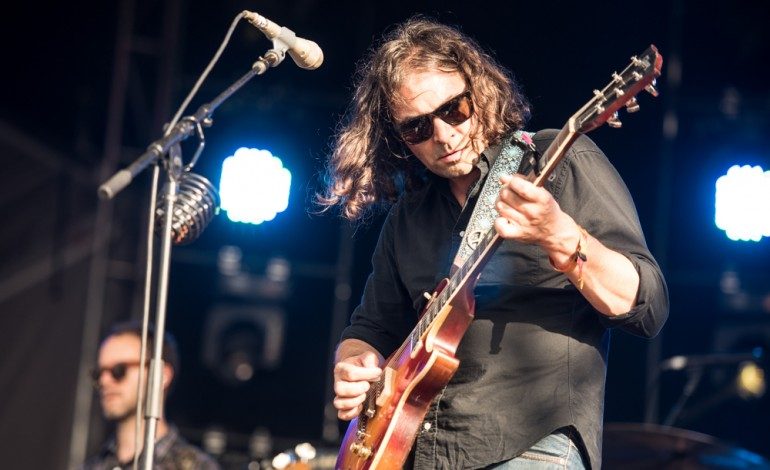

Every kind of music has its standards, songs that everybody knows how to play without needing to look at music. “Blue Bossa,” “Billie’s Bounce,” and “So What,” are all examples of jazz standards. The Eagles’ “Hotel California,” Tom Petty’s “Refugee,” and Neil Young’s “Like A Hurricane,” are examples of the same within rock music. The War On Drugs played a concert in Young’s hometown of Toronto last night in which they played his 1977 American Stars N’ Bars hit.
The tribute probably came about as a mixture of being in Young’s hometown and a recent experience frontman Adam Granduciel had with the inimitable artist. As told in an interview with GRAMMY.com, Granduciel explains how watching and hearing Young’s expressive guitar style inspired him to experiment with the sound of his own guitar. Granduciel credits Young with having been a major influence on The War On Drugs’ latest LP, A Deeper Understanding, that came out in August.
The War On Drugs holds an interesting instrumental lineup consisting of David Hartley (bass), Robbie Bennett (keyboards), Charlie Hall (drums), Jon Natchez (saxophone, keyboards) and Anthony LaMarca (guitar). They’ve got instruments in there as permanent fixtures that other artists usually must outsource. The band had originally been started by Granduciel and Kurt Vile, who created Wagonwheel Blues together in 2008. Vile left the group shortly after their first release to pursue a now-successful solo career. The War On Drugs first album without Vile, and second altogether, Slave Ambient, met favorable reviews in the media and was paired with an extensive tour. Their third album, however, garnered the most wide scale acclaim out of the trio. Granduciel had been battling through a sense of the isolation commonly associated with touring when he and the band released Lost in the Dream.
Neil Young is an American hero. He is one of the greats, and not just because he sold a lot of albums. Artists like David Bowie, The Rolling Stones, and Bob Dylan are able to cement themselves in popular culture throughout a half century only because they experimented constantly and produced an excessive amount of work. All three artists have produced plenty of flops. However, it’s those flops that create space between their masterpieces, the albums and songs that will never fade away because bands like The War On Drugs feel a need to cover them. A tear of great albums is a great thing, but experimentation is key to an artist’s creative longevity and success. Young knows this, check out his album Trans. He just released Hitchhiker, a previously unreleased album from 1976, and is planning a reissue of his 1992 album, Harvest Moon.
Photography Credit: Sharon Alagna
